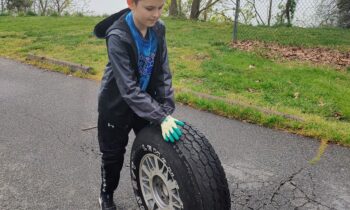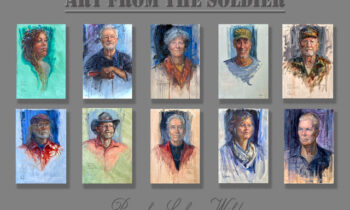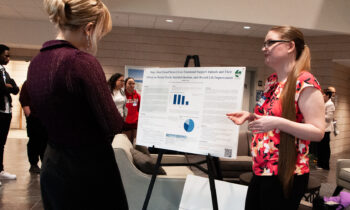
People Of Recovery
Written by Steven Bergey
I always assumed the first time would be my last time; I didn’t know it, but the term “chronic relapser” would be coined upon me – a term that stuck with me all throughout my early adulthood.
As I’m sure is the same with every other area of the country, save for a few differences, drinking on the weekends as a high school student was very much the norm, and had been, I’m sure, for the countless generations before me in the Philadelphia neighborhood that I grew up in.
In the recovery community today, a lot of what I hear is: “when I was young, I felt as though I didn’t belong; I felt an emptiness inside – a longing to fit in.” I can say with certainly that I’m not very sure this was true for me. Growing up is strange. We all at one point or another felt weird and out of place. I’m not entirely convinced that when I took my first drink at around the age of 11, that I had enough of a grasp on the world and how I relate to it to come to the conclusion that I felt like an outsider. What I am convinced of, however, is that I’m not quite sure others around me reacted to it the same way I did.
There’s a wonderful quote from a book on alcoholism that says: “men and women drink essentially because they like the effect produced by alcohol.” Nothing more. Nothing profound and deep-seeded. No intense trauma I was running away from. No broken home that made me feel unloved. I LOVED, LOVED, LOVED the way alcohol made me feel and was obsessed that I could use it to alter my mood. Period. In fact, I loved this process so much that I soon graduated to other substances that were more easily accessible and weren’t so messy.

Pot and prescription pills entered my life soon after alcohol did, and they had a profound effect on me. I would have a very difficult time trying to remember what I ate for lunch yesterday, but I can, in detail, remember the first time I felt opioid painkillers running through my system.
The two green pills I ingested at my lunch table during sophomore year took about 20 minutes to take effect. I remember feeling as though a breeze passed through me that gave me the confidence that alcohol gave, and a euphoria that set the bar for a lifetime. Being still so young and naïve, I was completely unaware of the habitual physical component of pharmaceuticals. I remember waking up some mornings with the sensation of being shocked – my back would jerk violently, and I felt like I would be hallucinating. This would come and go from time to time until one night when I was experiencing what I had just chalked up to nightmares, I woke up in the hospital.
The doctor came over to my bed and read my toxicology report. I could not even listen to what he was saying, I just felt so mortified being that my mother was standing right next to me. After he read the long list, he said something to effect of “when you take these chemicals regularly and stop, it puts you at risk for all kinds of things, including seizures.”
Laying in a hospital bed at 15 years old, my brave and unwavering mother by my side, I was just told I had had a grand mal seizure induced by benzodiazepine withdrawal. I would go on to have 3 more grand mal seizures that year, one of which landed me in the hospital for a week.
Along with a few other traumas, run-ins with cops, failed school years and grueling family tensions, my introduction to drugs and alcohol can be summed up like this: first drink at 11, physically dependent on drugs at 15, suicidal by 16, in treatment for the first time at 17.
My first stint in treatment yielded me 3 years of continuous sobriety. I lived a life free from drugs and alcohol with the help of a 12-step fellowship.

Somewhere along that stretch of time I convinced myself that what I experienced when I was younger was a phase. Surely, I had outgrown those “issues” and had matured to the point of being able to manage and control myself. I made a conscious decision to take a drink at the age of 20 and what followed was 7 years of what seemed like a demented version of Groundhog Day. My drinking led me back into prescription pills and ultimately a full-blown heroin addiction. I went in and out of roughly a dozen institutions and was lucky to put together 6 months of clean time.
I wanted to be sober. I truly did. The pain was excruciating, and I was losing hope that I’d be able to continue the vicious cycle of treatment, sobriety, relapse, hell.
Of the many ways that one decides to go to treatment, any “rock bottoms” that are experienced prior to accepting help, I’ve done all of them. I’ve been supported by family, I’ve driven myself to detox, I’ve had friends drive me there, I’ve had treatment centers pick me up, etc. None of this amounts to anything if I wasn’t fighting the fight that I was responsible for. Everyone loved me to death but unfortunately this only goes so far.
What stood between myself and getting sober was a stubborn hard-headedness that thought I knew it all. As soon as the pain subsided, I no longer needed the help and would find myself on my way, determined to maintain sobriety. The knowledge of my condition stood inferior to what I was up against – a monster of a drug addiction that would find me no matter what. Sometimes it was 6 months, other times it was 6 days.

My moment of clarity came in the form of a phone call I made during my last time in treatment. “This is all you do, Steve. You go to treatment, you come home, do seemingly alright, then burn everything to the ground and go off again.” My friend did not know the weight of her statement; I had heard this narrative all my life and was very aware of the pain I was causing people. What was different was that I was never able to truly internalize it.
Everyone’s journey is different, and people recover in all sorts of ways. What I know to be true is that God spoke to me during that 2-minute phone call and finally put everything into perspective. I hardly have the right to ruin my own life but in no way shape or form do I have the right to ruin anyone else’s. If I had not seen the big picture – the ripple effect of my addiction, I would not have gotten clean. This was the starting point that built the foundation that would ensure long-term sobriety. This moment allowed me to fully surrender to the process of recovery and for once in my life take the suggestions I was given.
This phone call occurred in December of 2016 and I have not had a drink or a drug since. The theme of things going full circle continues to be apparent in my life today. The pain and suffering I caused myself and others over the years have become accolades in my approach to helping men and women recover from a seemingly hopeless condition.



